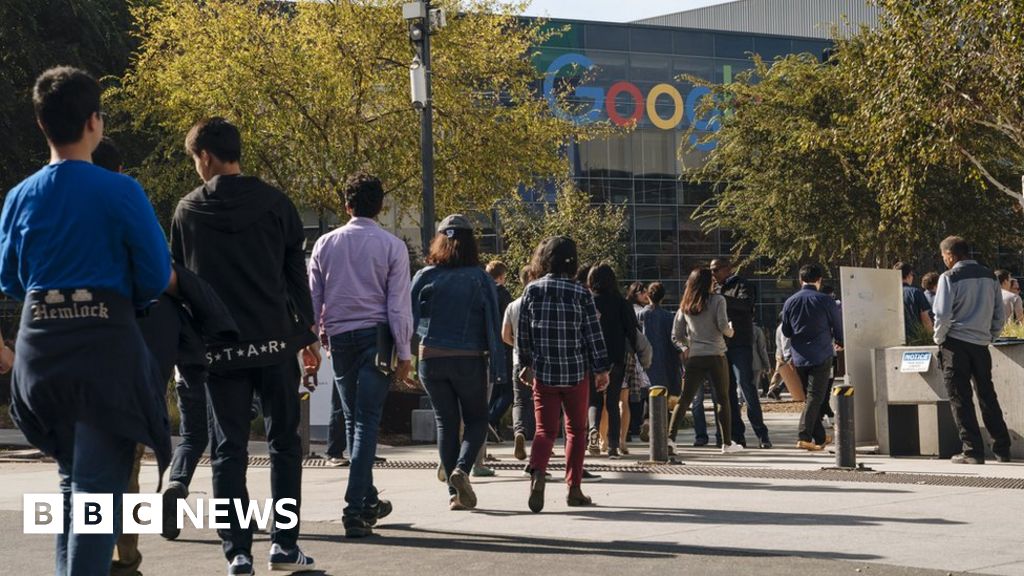
Alibaba CEO Daniel Zhang speaks in front of a screen showing total sales at over 213.5 billion yuan (30.7 billion USD) shortly after the end of the 11.11, or "Singles Day" shopping festival, at the 2018 Tmall 11:11 Global Shopping Festival gala in Shanghai early on November 12, 2018.
STR | AFP | Getty Images
Singles Day or 11.11, is the biggest shopping day of the year for singles, as Chinese e-commerce players led by Alibaba offer massive discounts on everything from electronics to cars.
Taking place on Nov. 11 each year, Singles Day is widely believed to have started in the 1990s by men celebrating being single in universities.
In 2009, Alibaba launched its first shopping event that day, offering heavy discounts on its Tmall shopping platform. That year, gross merchandising value — or the value of goods sold via Alibaba platforms — hit $7.8 million.
Last year, that figure was more than $30 billion — a new record for the Chinese technology giant.
To keep growing, against the backdrop of the ongoing U.S.-China trade war, slowing Chinese growth, and increased competition, Alibaba has been expanding its offerings into new product categories and experiences.
Star power and live streaming
Alibaba usually kicks off Singles Day with a gala event which ends just before midnight on Nov. 11. Last year, Mariah Carey put on a performance, and this year, Alibaba signed up U.S. pop superstar Taylor Swift. The gala, which is streamed online, often showcases some of the brands that will be on offer and prompts users to begin pre-ordering.
Live streaming has become a big part of the shopping experience on Chinese e-commerce sites. Often online personalities will speak to their followers and talk about products.
Within the livestream, there will be an option to buy the goods. Alibaba's platforms Taobao and Tmall have this feature. On Wednesday, Kim Kardashian did a livestream announcing her fragrance brand KKW will be available for sale on Tmall.
Kim Kardashian did a live stream on Alibaba's Tmall platform to announce her fragrance range KKW would be available for purchase on the e-commerce site.
Tmall | Alibaba
Companies are selling items from cars to cosmetics via livstreaming. Alibaba said on the first day of its pre-sales that more than 17,000 brands started livestreaming. Chinese smartphone-maker Xiaomi's livestream attracted over 200,000 online viewers within the first 10 hours.
Short videos are also very popular in China and livestreaming commerce taps into that trend. Xiaofeng Wang, senior analyst at Forrester, said consumers can often get exclusive discounts when watching the live streams.
"Livestreaming commerce provides a lot of exclusive offers which increases the urgency. Livestreaming might be a few minutes or 30 minutes long, within the time they provide exclusive offers. That is another motivation for consumers," Wang told CNBC.
More items for sale
Alibaba said that 1 million new products will be on offer during the Singles Day festival. Over the past few years, the categories of items available have been expanding.
Users can buy cars, for example. In fact, Alibaba said that on one of its Taobao livestreams, 55 cars were sold in just 1 second. International auto brands are also taking part in this year's Singles Day event.
Meanwhile, Alibaba's travel arm is offering packages to the 2020 Olympics in Tokyo. Disney is also offering discounted tickets to its theme park in Shanghai.
International brands are expected to play a big role. In China, 60% of consumers intend to purchase imported products, according to a 1,000-person survey carried out by management consulting firm Oliver Wyman.
Of the 200,000 brands that are expected to participate in the 11.11 festival, 22,000 will be from 78 overseas markets, according to Alibaba.
International efforts
Singles Day used to be a phenomenon only open to Chinese consumers, but Alibaba has been looking to expand its reach in a bid to boost sales and as the e-commerce giant continues to push its business overseas.
Lazada, a Singapore-based e-commerce site that has operations across Southeast Asia and is majority-owned by Alibaba, is having its own sales.
And Alibaba-owned AliExpress, will let local merchants from Russia, Spain, Italy and Turkey to participate in the 11.11 sales event for the first time.
What it means for business
Alibaba is expected to bring in GMV of $37 billion for this Singles Day, according to Forrester forecasts — that represents a roughly 20.5% rise. That growth rate is slower than the year-on-year increase of some 27% recorded in 2018.
Wang said that this is not a concern.
"When a market matures, you cannot continue to grow at a high double digit every time. Just like the Chinese economy used to be double digit growth, it's just single digit now. It is natural, it is still growing, it's still a big market, that is a positive," Wang said.
The December quarter tends to be Alibaba's biggest by revenue, thanks in part to Singles Day.
While commerce is still the biggest portion of Alibaba's overall business, in the long term, analysts see its rapidly-growing cloud division to become crucial for profits.
https://www.cnbc.com/2019/11/08/alibaba-singles-day-2019-preview.html
2019-11-08 04:53:00Z
52780429913400
.1573129354321.png)


